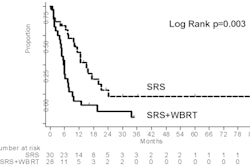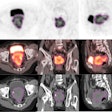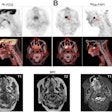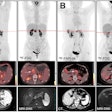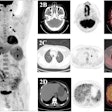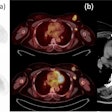Individuals who received total body or abdominal radiation therapy as treatment for childhood cancer have an increased risk of becoming diabetic when they reach adulthood.
This risk is unrelated to physical inactivity and obesity, two factors associated with diabetes, according to research published in the August 10 issue of the Annals of Internal Medicine (2009, Vol. 169:15, pp. 1381-1388).
An analysis of 8,599 participants in the Childhood Cancer Survivor Study revealed that 2.1% reported in a 2003 survey that they took a medication for diabetes, compared with 1.7% of a randomly selected group of 2,936 siblings. After adjustments for age, race, sex, body mass index, household income, and health insurance coverage, the childhood cancer survivors had a 1.6 greater risk of contracting diabetes compared to their siblings.
The survivors also became diabetic at a younger age. Fifty-seven percent of the 218 survivors who reported that they took prescription medication for their condition were younger than 35, compared with 35% of their siblings who took medication.
Susceptibility to diabetes was influenced by the type of childhood cancer and the type of treatment. The risk was most evident for survivors of acute myeloid leukemia (5.7-fold risk), neuroblastoma (2.9-fold risk), Wilms' tumor (2.2-fold risk), and acute lymphoblastic leukemia (1.8-fold risk).
Patients who were treated with abdominal irradiation were significantly more likely than their siblings to have diabetes, with neuroblastoma survivors having a 6.9-fold risk, according to lead author Dr. Lillian Meacham, medical director of the cancer survivor program and a pediatric endocrinologist in the pediatric department of Emory University School of Medicine in Atlanta.
Survivors treated for cancer before the age of 5 were 2.4 times as likely to report that they had diabetes as those who were diagnosed between the ages of 15 and 20 years.
As with the general population, physical inactivity, a high body mass index, lower household income, older age, and having a black or Hispanic background increased the risk of survivors having diabetes during their lifetime.
The researchers speculated that alterations in the adipose-derived hormones after radiation therapy may lead to insulin resistance. They suggested that the production of adiponectin or other adipose-derived hormones is a radiosensitive process, and decreased levels may be a late effect of therapeutic abdominal irradiation.
Related Reading
Neuroblastoma patients face chronic health risks, August 5, 2009
Passport for Care aids follow-up of childhood cancer survivors, April 13, 2009
Childhood cancer survivors have increased risk of developing new malignancies, December 31, 2007
Copyright © 2009 AuntMinnie.com







